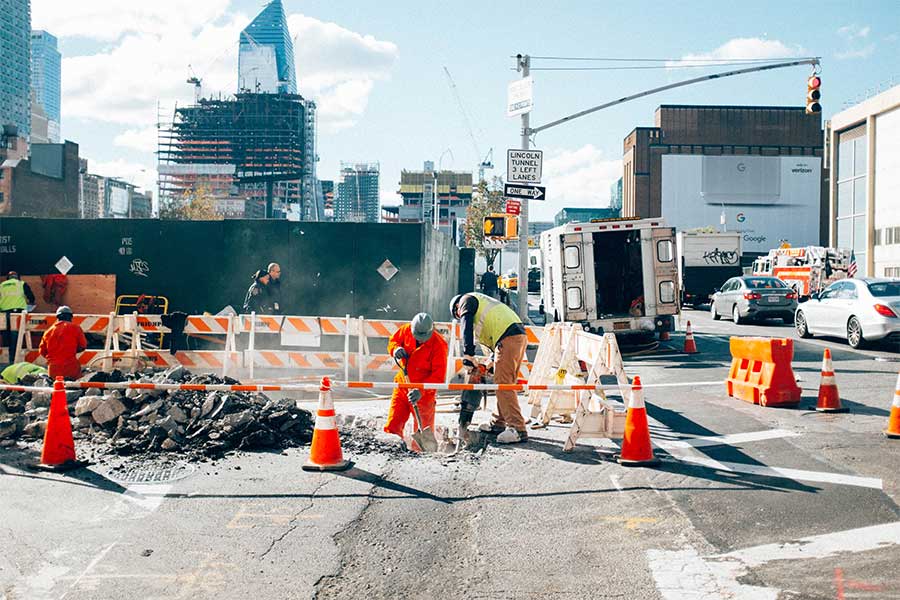Claiming Compensation for Noise-Induced Hearing Loss
Luke Glassford submitted an article to us on Industrial Deafness a short while ago. During our conversations, I asked him to submit another article based on the process of claiming compensation for Noise-Induced Hearing Loss. Someone had asked us about it in the past and we had no idea of the process. So, I thought it would be of value to us and our readers to have an outline. Without further blah, I will hand you over to Luke.
According to recent figures released by the Health and Safety Executive (HSE), an estimated 20,000 UK workers are suffering from industrial deafness – also known as Noise-Induced Hearing Loss or occupational deafness.
The HSE’s data shows that the highest rates of work-related deafness occur in the construction, manufacturing, extraction and energy industries – job roles that typically require long and frequent exposure to excessive noise in the workplace.
If you suffer problems with your hearing due to noise in the workplace, then you could be entitled to claim compensation. Below we will outline what you need to make a successful claim and how the compensation award is calculated. To find out more about industrial deafness, read our recent guide: Industrial Deafness, Causes & Symptoms

Photo by nicolas leclercq on Unsplash
Industrial deafness claim process
There are three main stages to the claims process:
- Getting a diagnosis
- Demonstrating the cause
- Establishing liability (who is at fault)
Getting a diagnosis
Industrial deafness is what is called a ‘latency’ disease, in that it can take years for the symptoms to fully reveal themselves after the initial damage is caused. Because of this, many people who notice hearing loss assume the symptoms are merely a sign of ageing rather than a result of damage caused by excessive noise at a previous job.
If you were exposed to excessive noise in your previous employment, then it doesn’t necessarily mean this was the cause of your hearing loss – but you should certainly visit your GP and tell them of your concerns. You may then be referred to a hearing specialist so you can be officially diagnosed with industrial deafness.
Demonstrating the cause
Once it has been established that your hearing loss is due to work-related noise, the next step is to demonstrate precisely what caused it. This doesn’t mean identifying exactly what noises caused the damage; it means finding out why you were exposed to potentially damaging noise for an extended period.
The most common cause of industrial deafness is the lack of adequate ear protectors being used, or the lack of training either being provided by the employer or protocols not being followed by the employee. Which takes us to the next stage – establishing whose negligence caused the damage and who is, therefore, liable for the claim.
Establishing liability
A successful compensation claim depends on proving that the negligence of someone else was the cause of your condition. In cases of industrial deafness, this means being able to prove that your employer was negligent in some way. As per the Health and Safety at Work Act, all employers have a legal ‘duty of care’ to take all reasonable actions to ensure their employees are safe in the workplace.
There are now also much stricter rules in place regarding noise, with the Control of Noise at Work Regulations 2005 laying down guidelines to make sure workers are protected from excessive noise in the workplace. To comply with these regulations, all employers must carry out regular risk assessments to check the levels of noise their employees are subjected to.
Procedures to then manage the risk of hearing damage must be put in place to protect the well-being of employees, such as providing ear protection or limiting the number of time employees are required to work near loud machinery. Employers are required to make all reasonable efforts to manage the level of noise at work and keep it below the legal limit of 80 – 85 decibels. Examples of steps they could take include:
- Using quieter machinery in the workplace
- Installing barriers and absorbent materials
- Reducing the amount of time employees work near loud machines
- Providing personal protective equipment (PPE), e.g. earplugs
Calculating your compensation payout
To determine how much compensation you could be entitled to if your claim is successful, several factors will need to be taken into account. For example, the severity of your hearing loss (whether it is temporary or permanent, whether you have a long-lasting condition like tinnitus, whether it affects one or both ears etc.) will have a major bearing on how much compensation you are awarded.
Also, the effect your hearing loss has had on your day to day life will also be taken into account. If it has affected your social life, your ability to work or your mental wellbeing, for example. Also, if you have incurred any financial costs such as medical treatment or hearing aids, then this will be taken into account.
As compensation payouts depend on so many individual factors that are unique to each claimant, it is not possible to provide an accurate estimate of how much your potential claim could be worth. However, the Judicial College does supply some general guidelines that are used by the Courts to determine the worth of claims.
Regarding industrial deafness, these guideline payouts range from around £6,000 - £10,000 for slight hearing loss and ‘occasional tinnitus’ all the way up to £100,000+ for complete deafness in both ears and loss of speech.
These figures should only be used as a guideline figure; it is possible that your claim could be worth significantly less or significantly more depending on your circumstances.
If you like what you see, share it so others can benefit
Posted by Luke Glassford

Luke Glassford
With over 10 years of experience working with personal injury experts, Luke has a wealth of knowledge regarding the compensation claims process in the UK. He works with CL Legal – personal injury solicitors specialising in no win no fee industrial deafness compensation claims.
Looking For the Latest Hearing Aids or A Hearing Test?
Arrange a consultation with a trusted Independent hearing healthcare professional in your area



